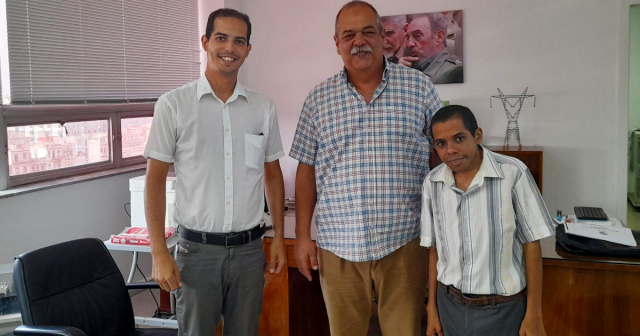The Cuban Minister of Energy and Mines, Vicente de la O Levy, stated that "planning blackouts" is "extremely complex", in a context of energy crisis that keeps the population under power cuts of up to 18 hours a day.
The official appeared alongside the ruler Miguel Díaz-Canel in a television space led by government spokesperson Arleen Rodríguez, in an attempt to alleviate popular discontent in the country due to the energy crisis.
It is extremely complex to plan blackouts because "you have to analyze the available fuel, and calculate the deficit, the Electrical Union has lived to provide electricity, not to give blackouts and they have had to specialize in that issue," said de la O Levi.
"We have to do an analysis of the ship that is going to enter, what quantity of fuel, what quality of fuel, how much it cost us, what time the fuel arrives, what port the ship is going to, and after five hours we are doing the same again. analysis because the situation changed," he explained.
Díaz-Canel added that we must also analyze "how much this fuel in generation to know how much the deficit is, how many hours the deficit is, what day the worst deficit is going to be.
According to the minister, "when (the deficit) is 500 MW it is very easy because the circuits are rotated and distributed in an easier way, but when we talk about 12, 14 and 18 hours (of blackouts), and up to 1500 MW ( of deficit on demand) you have to protect circuits, such as the essential ones, those for food production, and then you don't have much capacity for maneuver If a strategic objective fails, you have to turn it on," he pointed out.
The widespread social unrest sweeping the Island caused March 17 (17M) a day of protests against the Cuban regime and its disastrous management of the economic, political and social crisis that plunges the population into misery and despair.
The outbreak took place in the city of Santiago de Cuba, in the east of the country, when in the afternoon residents of the Reparto Veguita de Galo took to the streets to protest the lack of electricity and the shortage of food.
The events immediately recalled the outbreak of the historic protests of July 11, 2021 (11J), when thousands of Cubans took to the streets of towns and cities in the country, also shouting "Homeland and Life", a phrase inspired by a homonymous protest song that completely changes the meaning of the Cuban regime's motto of “Homeland or Death.”
Díaz-Canel has tried to distort Sunday's protests and has blamed the United States and the aided embargo for the widespread crisis on the island, while prosecuting for corruption the promoter of the disastrous economic measures that have worsened the situation in the country, the former minister. of Economy Alejandro Gil.
The president insists that the blackouts are the cause of the protests; but it does not mention that the cry of the Cubans in these demonstrations has been that of "Freedom."
Currently, several Cuban provinces report power outages of up to 18 hours a day. Many families who depend on electricity to cook their food complain and the rest of the population affirms that the little food that appears spoils without refrigeration. "We are hungry," the people of Santiago shouted on Sunday.
What do you think?
SEE COMMENTS (2)Filed in:
